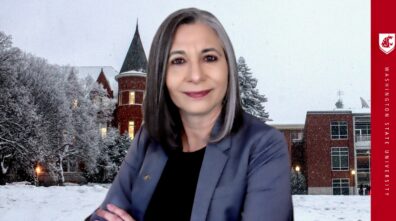
Luz María Gordillo, Ph.D.
Assistant Dean for Inclusive Excellence
College of Agricultural, Human, and Natural Resource Sciences
Associate Professor of History
Campus Director of Faculty Equity and Outreach
Departments:
- Arts and Sciences
- History
- Humanities
- Social Science
- Women’s, Gender, and Sexuality Studies
Dr. Gordillo is Assistant Dean for Diversity, Equity, and Inclusive Excellence in the College of Agriculture, Human, and Natural Resource Sciences (CAHNRS); Associate Professor of History, and Campus Director of Faculty Equity and Outreach at WSU Vancouver (CDFEO). Her first book Mexican Women and the Other Side of Immigration: Engendering Transnational Ties published in 2010 garnered the National Association of Latina and Latino Anthropologists (ALLA) Book Award in 2011. In 2013, Dr. Gordillo co-directed and co-produced the film, entitled Antonia: A Chicana Story. In conjunction with the documentary, Dr. Gordillo worked on a series of interviews with Chicanx activists, scholars, artists, and art critics for the book Engendered History: The Collected Works of Antonia Castañeda.
Dr. Gordillo has also published articles and book reviews for Aztlán: A Journal of Chicano Studies, Chicana/Latina Studies: The Journal of Mujeres Activas en Letras y Cambio Social, Border-Lines: Journal of the LRC, Latino Research Center, Women, Gender, and Families of Color, Journal of American Ethnic History, Gender and Society, Oregon Historical Quarterly, and the Western Historical Quarterly.
Her essay, “Gendering the Nador/Melilla Border: Muslim Women, Economic, [Under]Development and Structural Violence” is currently under review by Meridians.
Dr. Gordillo’s current monograph, Patients, Philanthropists, and Fieldworkers: The Hidden History of Women and Eugenics examines gender and eugenics during the tenure of the Eugenics Record Office (ERO) in Cold Spring Harbor, Long Island, 1910-1939. Gordillo’s monograph brings science and the humanities together at an unexplored crossroad that has the potential to explore thought-provoking connections of a period that is complex, sensitive, and contentious.
Research
- History of Medicine and Technology
- Gender and Sexuality Studies
- Immigration Studies
- History of Chicanx and Latinx